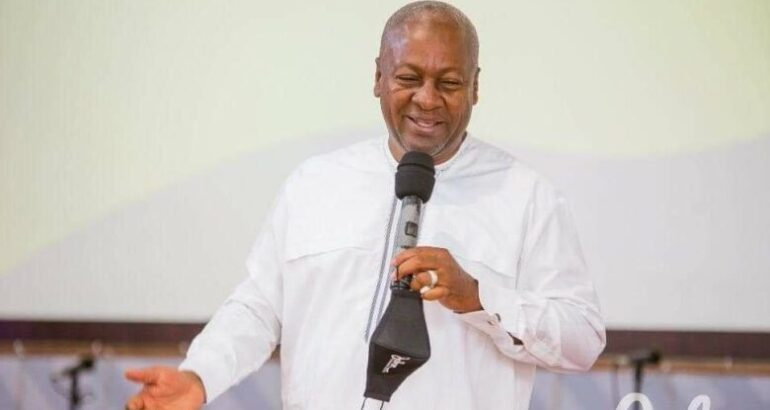President John Dramani Mahama has firmly dismissed the possibility of privatizing the Electricity Company of Ghana (ECG), instead pledging to pursue strategic public-private partnerships (PPPs) aimed at improving efficiency within the country’s electricity distribution system.
During the 2025 May Day celebrations held at Black Star Square in Accra on Thursday, May 1, President Mahama sought to address growing public concerns regarding the potential sale of Ghana’s primary power distributor. He reassured workers and the general public that ECG will remain a public institution under his administration, dismissing fears of privatization as unfounded.
“Let me assure you that it is not my intention to privatize ECG as an institution. Our attention is more on a public-private collaboration to inject efficiency into our downstream electricity distribution system,” he stated emphatically.
President Mahama’s comments come amidst widespread public anxiety over ECG’s escalating debts and operational challenges, with many warning of an impending collapse of the energy sector. He attributed the company’s current precarious financial state to what he described as “poor governance and mismanagement” over the past eight years.
“The ECG has been brought to its knees by a culture of poor governance over the last eight years, with a debt of GH¢68 billion and rising. If we do not do something drastic, our whole power sector will collapse. We can only bring down power tariffs if we improve efficiency in the distribution of power,” he explained.
While ruling out outright privatization, President Mahama highlighted the potential of public-private partnerships as a more viable strategy for reform. He cited a successful example from his previous administration involving the Enclave Power Company in the Free Zones enclave, which he said demonstrated how efficiency could be achieved without relinquishing public ownership.
“When I was President, in the free zones, a private company, Enclave Power, was given the right of metering and billing in the free zone. ECG provided them with a bulk supply of power. They pay ECG, and until today, they still pay ECG monthly on time. Their billing and collection in the free zones enclave is 99% of revenue collected,” he recalled.
President Mahama argued that this model proves that operational efficiency within the electricity sector can be attained through partnerships that maintain state ownership while leveraging private sector expertise. For many Ghanaians in Kumasi and beyond, the future of ECG and the stability of the power supply is a critical concern, making President Mahama’s stance on PPPs a potentially significant development.


